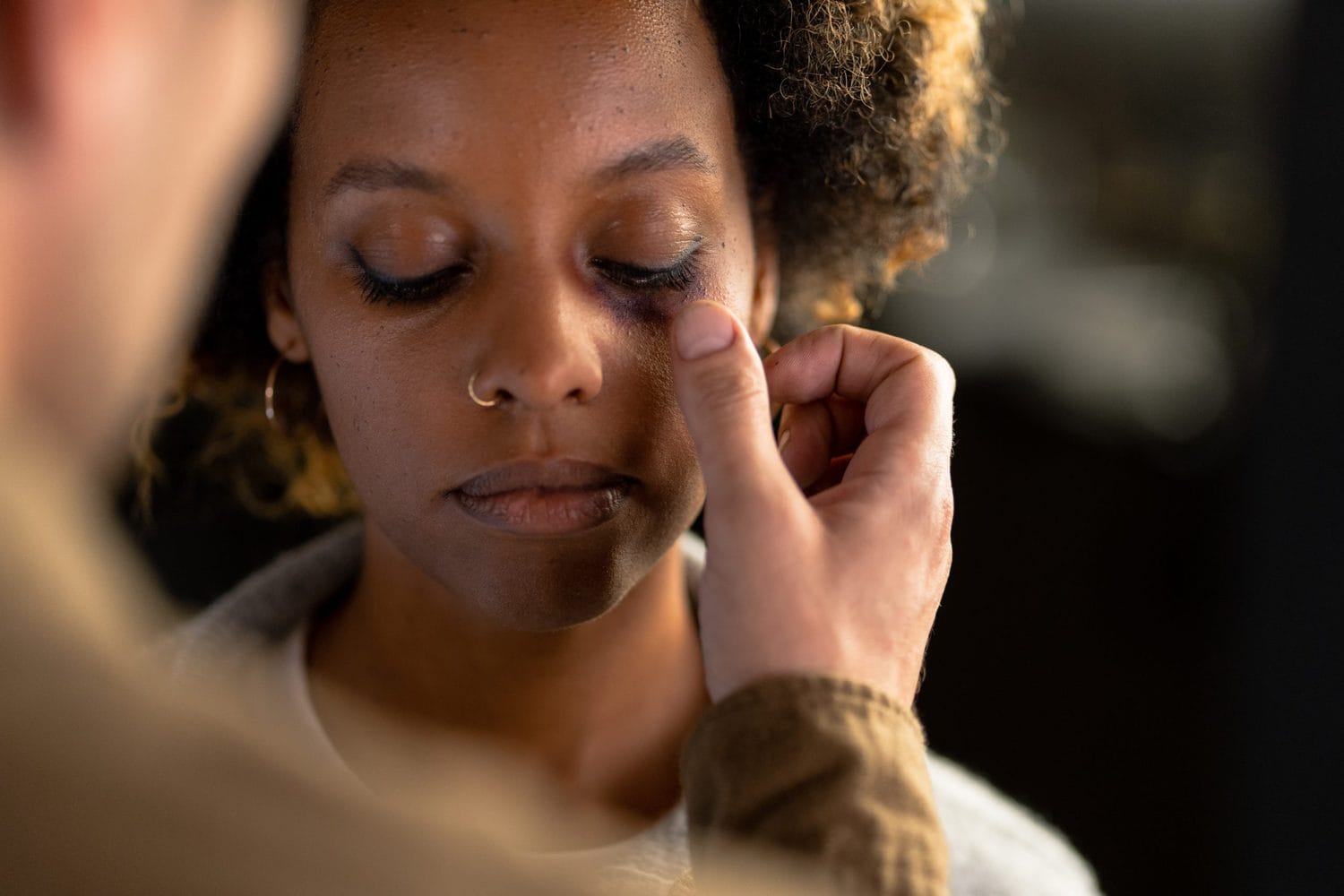Why do I feel like my trauma isn’t valid? If you’re asking yourself that question, you’re not alone. It’s common for people of all backgrounds who’ve experienced trauma to wonder if their trauma is “traumatic enough.”
Growing awareness of the trauma that results from truly horrific experiences like rape, assaults, near-death experiences, and witnessing a death can make the sorts of trauma that many people experience seem insignificant by comparison. Some people even go so far as to say that nothing bad has ever happened to them, so they don’t know why they act the way they do. What they really mean is, none of the bad things that have happened to them seem bad enough to complain about.
But you don’t have to be the victim of a crime or a combat veteran to have trauma. Anybody can be traumatized; in fact, more people are dealing with trauma than we realize. Since so many people think trauma can only come from massively traumatic experiences, lots of people live with undiagnosed and untreated trauma. They don’t get the help they need, because they don’t know that their trauma is valid, too.

What Is Trauma?
Let’s back up a bit and talk about what trauma is. If you’re asking why do I feel like my trauma isn’t valid, you might have misunderstood what trauma is. One of the most important things to learn is that there is no one-size-fits-all definition of trauma. The generalized definitions used by therapists and psychiatrists are only for diagnosing symptoms, and they’re left general and vague on purpose.
That’s because trauma itself is entirely subjective. The definitions used by clinicians all deal with the symptoms of trauma, and of related disorders. Trauma itself is unique to the individual. Your brain doesn’t care about culturally acceptable ideas of trauma. It only knows what it’s experienced.
Most people think trauma is always caused by abuse or by life-or-death situations, but that’s just not true. While those things can certainly cause trauma, most people who have suffered trauma had it happen in subtler, non-dramatic ways. Trauma can be the result of emotional abuse or neglect. It can be the result of a break up or the end of a friendship. Divorce can be especially traumatic. Abandonment, real or perceived, can cause trauma. Bullying and social rejection can also cause trauma.
Basically, if something you experienced felt traumatic, then it was. It’s as simple as that, and don’t let anyone tell you otherwise.

Why Do I Feel Like My Trauma Isn’t Valid?
You may already know all this. Maybe you’ve been told over and over again that trauma is subjective, and if it feels traumatic, then it is. Even so, you still can’t escape that feeling that you’ve really got nothing to complain about. You might even be feeling shame at how something so insignificant has caused you so much trauma.
After all, how can the emotional abuse you suffered even compare to the physical abuse that someone else has to deal with? The answer is: it can’t, and that’s the point.
Trauma is subjective. By definition you can’t compare your trauma with someone else’s, because it’s yours. Everybody is different, and what’s traumatic to you may not be traumatic to somebody else. Likewise, what’s traumatic to others might not bother you at all.
On top of that, even when there are experiences that nearly everyone would agree are traumatic, the degree to which it affects each person is different. Some people aren’t especially bothered by emotional neglect in their relationships, while others find it deeply traumatizing.
Most combat veterans have been traumatized to some degree, but not all of them will suffer from PTSD. In fact, some are able to return to normal civilian life with relative ease, while others take years to adjust, and some never do. Everybody is different. Your trauma is yours.
It’s time to stop comparing your trauma to other people’s trauma. You don’t know how those people would’ve handled all that you’ve experienced, and you don’t know how you would’ve handled their experiences, either. If you’re asking why do I feel like my trauma isn’t valid, you might be spending too much time comparing your trauma to other’s.
Some people can handle a single event better than a long-term situation. Maybe one bad moment of physical abuse would be less traumatic for you than years of emotional abuse, while the reverse is true of someone else. So, not only should you not be comparing your trauma to other’s, you also should never make assumptions about how others are handling their trauma.

Their Trauma Doesn’t Negate Your Trauma
At the root of the question “why do I feel like my trauma isn’t valid” is this: you think someone else’s experiences negate your own. Their experience was so much worse. Their trauma is so much worse. In comparison it seems like you should be fine. But that’s just not true. Someone else’s experiences can’t negate yours. Just because something worse happened to them doesn’t mean that your trauma didn’t happen. It may seem obvious- of course their experiences can’t negate yours- but this is something that a lot of us still believe, deep down.
You may have even had people tell you this. Maybe your emotionally abusive parents told you to get over it and move one, it’s not like they ever hit you or anything, right? Sometimes the people telling you your trauma isn’t valid are more well-meaning. They’re trying to change your perspective, thinking it will help you deal with your trauma better. Unfortunately they usually end up doing more harm than good. Remember: if it feels traumatic to you, then it is. Your trauma is valid.

Why People Experience Trauma Differently
We all know people who’ve experienced horrible things, and seemed unfazed by them. It’s remarkable to see how people can have completely different responses to the same situation.
You’ve probably seen people respond very differently to a death, for instance. Some people, when they lose a loved one, seem to be able to handle their grief well. They can grieve, process their emotions, and return to something close to normal very quickly. Others are absolutely devastated, and fall into a deep depression.
There are lots of reasons for this, but it’s important to stress that everyone responds to trauma differently. How well you can handle trauma is not an indicator of your strength, your faith, or your character.
There are all kinds of things that affect how you respond to trauma and even what traumatizes you. Events that would’ve been traumatic at a young age wouldn’t bother you so much if they happened when you were older. Likewise, some things that won’t traumatize you as an adult would be very traumatic as a child.
Think about the loss of a parent. That’s an event everyone will experience in life. For most people, if they’re parents live to an old age and they are well into adulthood before losing a parent, it’s not a very traumatic event. But if you lose them early in your childhood, it can be extremely traumatic.
A person’s support network can also be a big factor in trauma. A good support network can go a long way toward preventing trauma, or enabling a quick recovery.
Good therapy is also a great way to both prevent and heal trauma.
Often, when you see someone who appears to have no trauma, they’re simply very good at hiding it. Many traumatized people have learned to hide their pain and act as if everything is normal. So, don’t assume that a person hasn’t been affected by a traumatic event. They may simply be pretending to be unaffected.
You’ll notice that we haven’t said anything like “if your faith is strong enough” or “if you just pray about it…” That’s because those responses aren’t helpful. Trauma is not something you choose- it’s an involuntary response to things that are beyond your control. No matter how faithful you are and how much you pray you can experience trauma.
Your Trauma is Valid
Too many people ask “why do I feel like my trauma isn’t valid?” Nobody should feel like their trauma isn’t valid. Since there’s no objective way of defining or measuring trauma, nobody can tell you that your trauma is less valid than someone else’s.
Trauma is entirely subjective. If something felt traumatic to you, then it was traumatic. End of story. Nobody can tell you otherwise. And you don’t need to feel bad about your trauma just because you feel like what you experienced wasn’t bad enough to cause trauma.
That’s exactly the wrong way of looking at it. All kinds of things can be traumatic, and there’s no list of traumatic vs non-traumatic events. If you’re suffering from trauma, the way to change your world is to shift your focus. Instead of looking at everyone else’s lives and saying “what I experienced wasn’t that bad, I shouldn’t have trauma,” focus on your own experiences, and how you’ve been traumatized. Shift your focus, change your world.
Christians in particular can struggle with this, because we often think that we don’t need to worry about our mental health. But trauma won’t go away on its own. You need help, and it’s ok to ask for it.
Conclusion
Far too many people let themselves suffer needlessly by thinking that their trauma isn’t valid. Once they develop that mindset, they refuse to seek help. They often start hiding their pain. They get so good at it that sometimes they can even fool themselves for a while.
But trauma always comes back to the surface. Until you deal with it, it won’t go away. Don’t assume that because your experiences weren’t “bad enough” you don’t have trauma, or shouldn’t have trauma. Trauma is completely subjective. If something feels traumatic, then it is.

How to Know if You Need Grief Counseling
01/09/2023

How to Get Out of Survival Mode from Childhood Trauma
10/15/2022


